The 7 Songs That Ritchie Blackmore Picks His Favorites
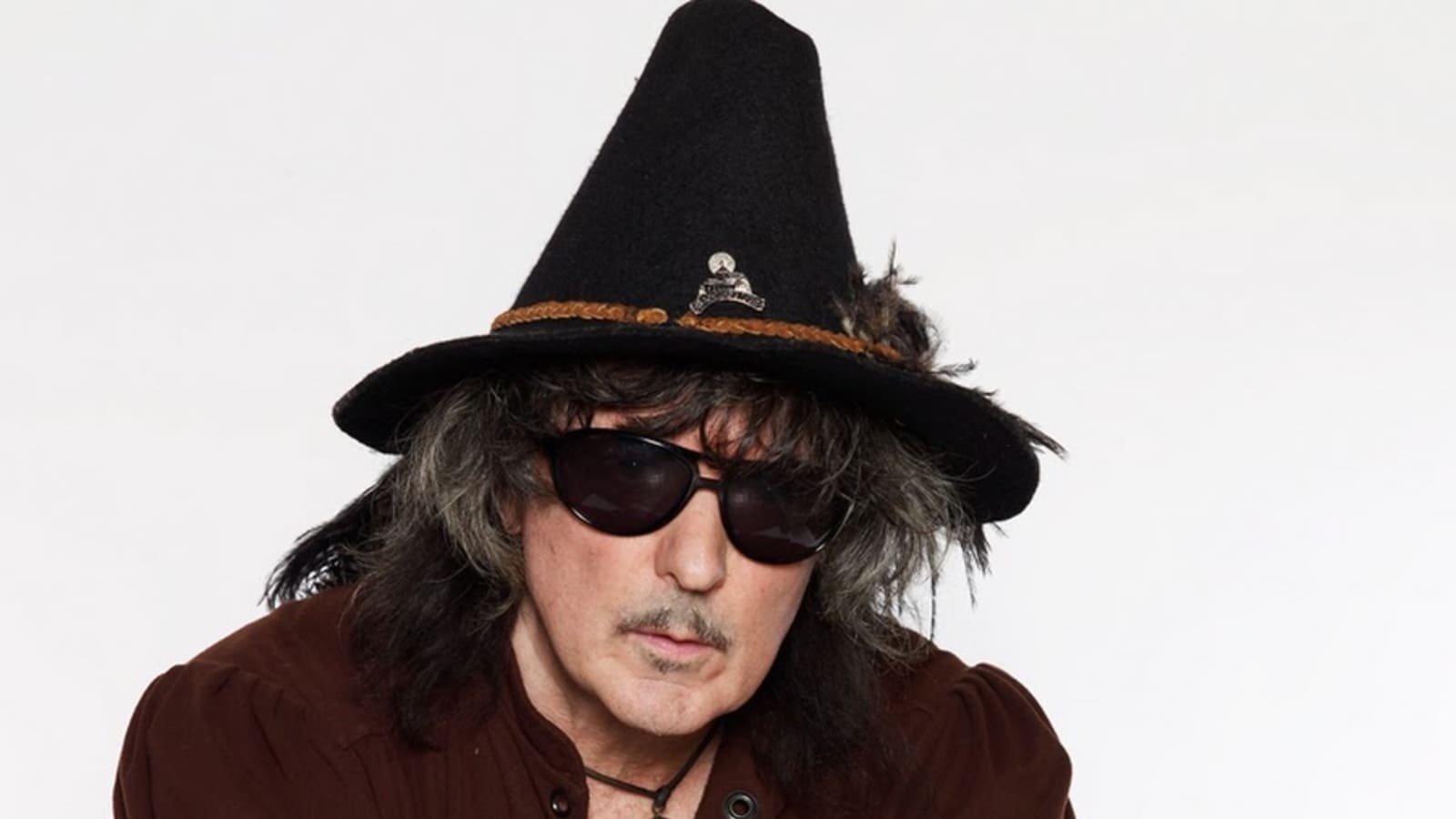
Ritchie Blackmore picks his favorite songs of all time. Deep Purple and Rainbow‘s guitarist Ritchie Blackmore is a well-known musician and he likes to add different classic and pop-rock styles to his music and solos for Deep Purple and Rainbow band. In this article, we will detail the songs that Ritchie Blackmore picked as his favorite of all time.
Ritchie Blackmore is a guitar virtuoso who has developed a unique style as one of the most influential guitarists of all time. This review dives into Ritchie Blackmore’s incredible journey. And tracking his musical progression, original style, and lasting impact on the world of rock and metal.
Ritchie Blackmore‘s musical career began in the 1960s when he joined The Outlaws, which eventually evolved into The Savages and The Lancasters. However, it was his time with the iconic band Deep Purple that catapulted him to fame. Blackmore’s excellent guitar playing, distinguished by a special blend of classical, blues, and rock influences, distinguished him as a true guitar virtuoso.
Blackmore showed great talent and innovation while with Deep Purple, contributing to the band’s characteristic sound with thunderous riffs and spectacular solos. Hits like “Smoke on the Water” and “Highway Star” attest to his outstanding talent and influence on the hard rock and heavy metal genres.
With the founding of Rainbow, Blackmore started on a new musical adventure after quitting Deep Purple. With Rainbow, he experimented with a more lyrical and symphonic sound, infusing fantasy and mythology into his guitar wizardry. Albums by the band, such as “Rising” and “Long Live Rock ‘n’ Roll,” have become timeless classics.
Blackmore formed the folk-influenced band Blackmore’s Night in the 1990s, displaying his versatility as a musician. He developed his interest in Renaissance and medieval music with this undertaking, including acoustic instruments and charming melodies in his repertoire. Blackmore’s Night gave him the opportunity to present a distinct aspect of his artistic expression, engaging audiences with a mix of historical and current elements.
The influence of Ritchie Blackmore on the guitar world cannot be emphasized. His precise and detailed playing, paired with his ability to create timeless melodies, has influenced countless guitarists of all genres. Blackmore’s ability to combine technical proficiency with emotional depth has earned him a place among the all-time great guitarists.
Ritchie Blackmore’s Favorite Songs of All Time
Ritchie Blackmore has also been known to share his respect for other talented musicians and their songs. Blackmore picked his favorite songs of all time. He has a passion for classic 60s, 70s, and pop-rock music too.
What kind of songs does Ritchie Blackmore love?
- Bob Dylan – Blonde On Blonde
- Rednex – Wish You Were Here
- John Mayall & the Bluesbreakers – A Hard Road
- Mike Oldfield feat. Maggie Reilly – “Moonlight Shadow”
- One More Time – One More Time (Album)
- Procol Harum – Homburg
- Procol Harum – The Prodigal Stranger
Ritchie Blackmore revealed in an interview with a fan the Top 7 Songs of All Time. Here is the Ritchie Blackmore picks albums as follows:
1. Blonde On Blonde – Bob Dylan
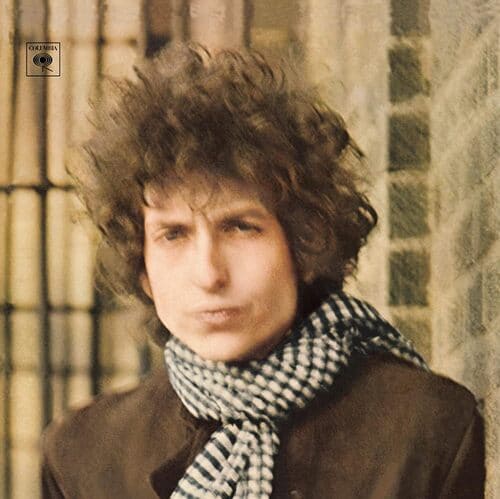
The release of “Blonde On Blonde” in 1966 described a moment in Bob Dylan‘s musical career. The album marked a change from his earlier folk stylings, embracing a more expansive sound that blended elements of rock, blues, and country. This daring aural exploration, mixed with Dylan’s unrivaled lyricism.
“Blonde On Blonde” is a diverse collection of songs that cover a wide range of topics and feelings. Dylan’s intelligent and contemplative lyrics dive with amazing depth and poetic perfection into love, sorrow, society, and personal contemplation. Tracks such as “Rainy Day Women #12 & 35,” “Visions of Johanna,” and “Just Like a Woman” demonstrate Dylan’s ability to weave complex narratives that connect with listeners on a deeply personal level.
Bob Johnston oversaw the album’s production, which provided a depth of musical richness to Dylan’s tunes. The elaborate arrangements, which included contributions from talented musicians, produced a vivid and engaging musical environment. Dylan’s unusual vocal delivery, combined with a blend of electronic and acoustic instruments, captured the essence of 1960s counterculture while laying the way for subsequent generations of songwriters.
“Blonde On Blonde” received widespread acclaim, cementing Bob Dylan’s reputation as a visionary artist. It has had a profound impact on future generations of artists and songwriters. The album’s daring experimentation and literary brilliance influenced a generation of musicians to push the boundaries of mainstream music and embrace a more introspective and artistic approach.
“Blonde On Blonde” is a timeless masterpiece that has captured audiences for decades. Its continuing appeal can be linked to the album’s aural richness, Dylan’s profound songwriting, and its ability to capture the spirit of a transformational period. Its placed on multiple “greatest albums of all time” lists.
Ritchie Blackmore shared why he likes “Blonde On Blonde” by Bob Dylan as one of his favorite songs of all time:
“I would love to play with Bob Dylan. I mean it sounds kind of funny in a way. But he is the only person I admire in the business.”
2. Wish You Were Here – Rednex
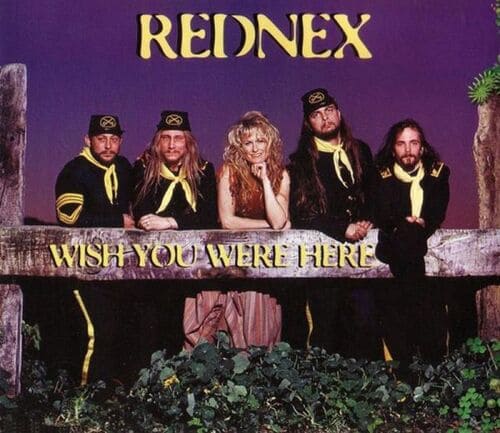
Rednex, a Swedish musical trio that formed in the 1990s, developed an unforgettable blend of Eurodance and country music. This synopsis delves into the irresistible energy, catchy tunes, and lighthearted spirit that described Rednex’s music, leaving an enduring influence on the crossover genre and attracting fans worldwide.
This band Rednex formed in 1994, found international success with their debut single, “Cotton Eye Joe.” The addictive rhythm, catchy melodies, and enthusiastic delivery rocketed the song to the top of the charts, instantly becoming a dance floor standard. “Cotton Eye Joe” demonstrated Rednex’s ability to flawlessly mix two seemingly dissimilar genres with its fusion of throbbing electronic beats and classic country components.
Rednex continued to provide cheerful and energetic compositions that challenged musical conventions after the success of their debut. Hits such as “Old Pop in an Oak,” “Wish You Were Here,” and “Spirit of the Hawk” demonstrated their ability to compose catchy melodies, captivating choruses, and an appealing party atmosphere.
Ritchie Blackmore revealed why he likes “Wish You Were Here” by Rednex as one of his favorite songs of all time:
“As far as guitarists oh Gordon guilt rap, brilliant Adrienne’s part is brilliant.
3. A Hard Road – John Mayall & the Bluesbreakers
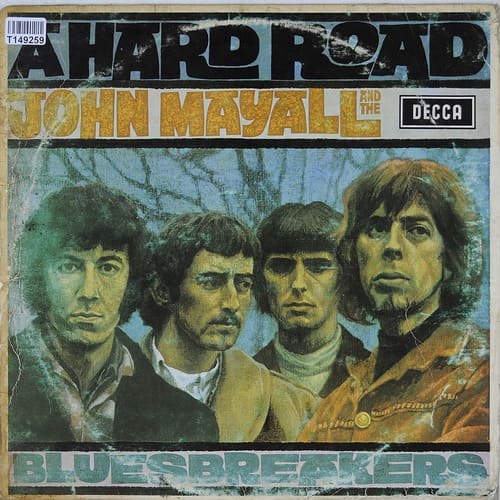
“A Hard Road” by John Mayall & the Bluesbreakers is a blues album that showcases raw musicianship, expressive narrative, and electric performances. This synopsis delves into the ongoing significance of “A Hard Road,” tracking its influence on the blues genre, influential lineup, and indelible stamp on music history.
The release of “A Hard Road” in 1967 was a watershed moment for John Mayall & the Bluesbreakers. The album’s lineup comprised guitar virtuoso Peter Green, bassist John McVie, and drummer Aynsley Dunbar, all of whom went on to become legends in their own right.
The songs on “A Hard Road” are steeped in the rich blues tradition, encapsulating the essence of loss, hardship, and resilience. From the mournful opening track, “A Hard Road,” to the soulful “It’s Over,” and the scorching “The Supernatural,” each song echoed with genuine emotion and demonstrated Mayall’s ability to tell fascinating storylines with his distinctive vocals and brilliant harmonica playing.
Mike Vernon oversaw the album’s production, which highlighted the raw force and authenticity of the Bluesbreakers’ sound. Mayall’s passionate vocals were set against an electric backdrop of dramatic orchestration, furious guitar solos, and a driving rhythm section. The sound purity and balance of the record ensured that each instrument had its proper place, allowing the listener to fully immerse themselves in the blues experience.
Ritchie Blackmore shared why he likes “A Hard Road” by John Mayall & the Bluesbreakers as one of his favorite songs of all time:
“I prefer a ‘heart’ player, I prefer someone like a Blues player with the kind of Jeff Healey, he is tremendous. I think John Mayall guy is great too.”
4. Moonlight Shadow – Mike Oldfield feat. Maggie Reilly
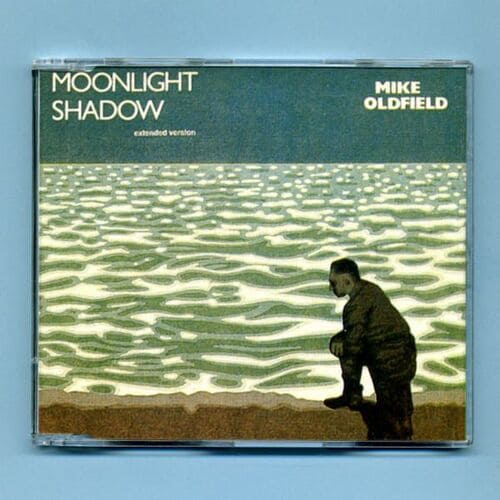
“Moonlight Shadow” by Mike Oldfield feat. Maggie Reilly is a timeless classic that conveys a melancholy picture of sadness, introspection, and the never-ending need for closure. This summary delves into the song’s uncanny beauty, emotive narration, and interesting vocals, which have made it a worldwide classic.
“Moonlight Shadow” was released in 1983 as a single from the album “Crises,” and it captivated listeners with its dreamy melody and interesting lyrics. Mike Oldfield’s distinct blend of progressive rock, folk elements, and electronic soundscapes provided a lush musical backdrop for the emotional tale of the song.
“Moonlight Shadow“‘s instrumental arrangement is equally captivating. The song’s emotional impact is heightened by Oldfield’s delicate guitar work, layered keyboards, and atmospheric drumming. The recurring melody, conveyed by both vocal and instrumental elements, becomes a haunting motif, echoing the protagonist’s never-ending search for resolution.
The universal themes of loss and the fleeting essence of life resonated with listeners all throughout the world. “Moonlight Shadow” became an international hit, striking a chord with listeners who were moved by its evocative lyrics and ambient atmosphere. Its triumph catapulted Mike Oldfield and Reilly into the spotlight and cemented their reputations as recognized musicians.
Ritchie Blackmore talks about why he likes “Moonlight Shadow” by Mike Oldfield feat. Maggie Reilly is one of his favorite songs of all time:
“Exactly. We [Ritchie and Candice] absolutely love that song and the music Mike Oldfield made at that time. So you can hear some of that in our music.”
5. One More Time (Album) – One More Time
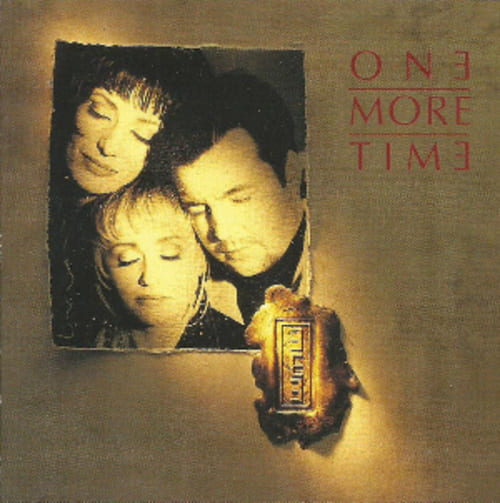
One More Time is a wonderful tribute band that has delighted audiences worldwide with their accurate and compelling renditions of ABBA‘s timeless hits. This synopsis delves into the enchantment of One More Time, their commitment to maintaining ABBA’s musical legacy, and their ability to transport spectators back to the golden age of disco.
One More Time was formed with a profound love for ABBA‘s songs and has mastered the skill of reproducing the Swedish supergroup’s trademark sound and stage presence. The band immerses themselves in the ABBA experience with great attention to detail, from the costumes to the choreography, ensuring an authentic and unforgettable performance.
The shows at One More Time take you on a journey through ABBA’s greatest classics, including chart-topping hits like “Dancing Queen,” “Mamma Mia,” and “Waterloo.” The band preserves the spirit of ABBA’s music, allowing fans to recapture the magic of the original band.
Joe Lynn Turner tells why Ritchie Blackmore loves ABBA:
“That’s absolutely accurate. He wanted some chart action. He was really tired of…
Ritchie is Ritchie. He goes from black to white to yellow, to whatever he wants to do. At this point in time, he wanted a more commercially accessible approach.
He loves ABBA. They are one of his favorite groups. He loves melody and all this. He said directly, ‘Look, we’re looking for this approach, less Dungeons and Dragons and more street value, talking to the people’.”
6. Homburg – Procol Harum
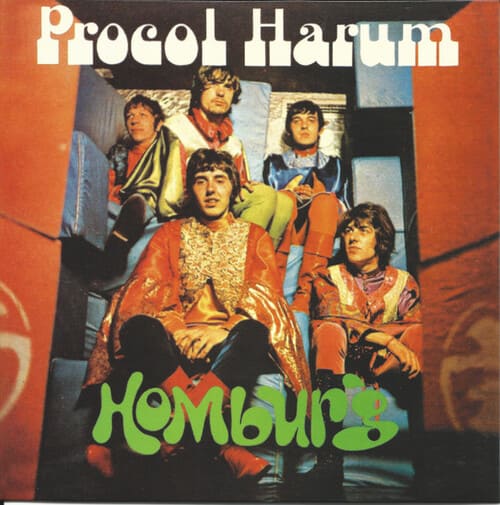
Procol Harum‘s “Homburg” is a requiring adjusted that highlights the band’s distinct blend of progressive rock and baroque pop. The enigmatic beauty of “Homburg,” its lyrical complexity, and the haunting melodies that have made it a timeless jewel in Procol Harum’s discography are all explored in this description.
“Homburg,” released as a single in 1967 and later included on their album “Procol Harum,” is a tribute to the band’s creative talent and ability to build vivid narratives through music.
Musically, “Homburg” shows Procol Harum’s tendency for fusing classical and rock elements. The haunting organ lines, sumptuous orchestration, and soulful vocals of Gary Brooker create an ambient backdrop that complements the introspective words wonderfully. The arrangement of the song demonstrates the band’s ability to flawlessly blend numerous musical styles into a cohesive and engaging whole.
“Homburg” is a song about longing, identity, and self-reflection at its core. The lyrics provide a vivid image of a protagonist struggling to find his place in the world and yearning for meaning and connection. The Homburg hat is transformed into a metaphor for a desire to transcend the everyday and embrace a more deep existence.
Ritchie Blackmore shares thoughts about why he likes “Homburg” by Procol Harum is one of his favorite songs of all time:
“They’re one of the most iconic bands of the ’60s, and for people of Blackmore’s generation, they’re up there with the finest. However, it wasn’t ‘A Whiter Shade of Pale’ that he chose; it was its follow-up single, ‘Homburg’.”
7. The Prodigal Stranger – Procol Harum
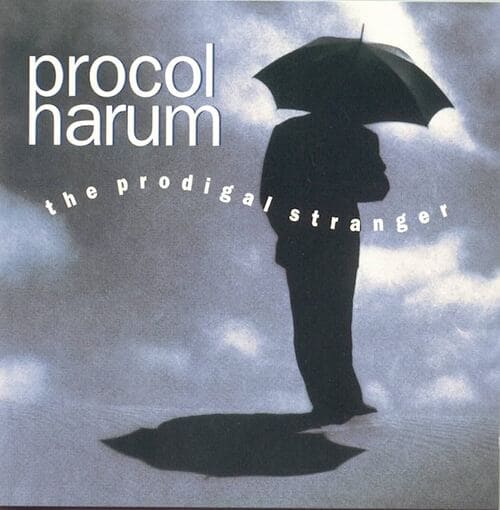
Procol Harum‘s amazing song “The Prodigal Stranger” marked their victorious return to the music arena after a lengthy break. This synopsis dives into the haunting melodies, introspective lyrics, and the band’s revitalized style that helped “The Prodigal Stranger” stand out in Procol Harum‘s career.
“The Prodigal Stranger,” released in 1991 as the album’s title tune, illustrates the band’s growth while remaining true to their characteristic sound. The song incorporates the peculiar blend of progressive rock and art rock elements that have distinguished Procol Harum’s music, as well as a revitalized vigor that breathes new life into their sound.
“The Prodigal Stranger” explores themes of longing, loss, and the search for forgiveness in its lyrics. The protagonist of the song is portrayed as a wanderer coming home, wrestling with past misdeeds, and seeking consolation and forgiveness. The introspective lyrics evoke a sense of personal contemplation as well as the universal human experience of seeking salvation and finding one’s place in the world.
Ritchie Blackmore speaks about why he likes “The Prodigal Stranger” by Procol Harum as one of his favorite songs of all time:
“Procol Harum, but as music fans, we can understand why.”
What are your thoughts on guitarist Ritchie Blackmore‘s favorite songs of all time? Let me know in the comment section!
“Wish You Were Here (Pink Floyd cover)” by Rednex.
Laugh of the day!!! 😀 😀 😀